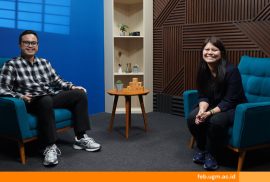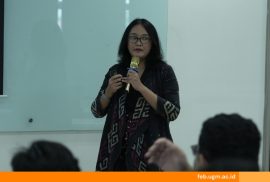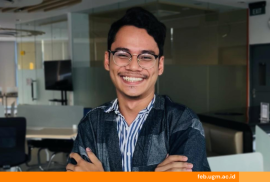In facing the challenges of climate change and natural resource degradation, bioeconomy is considered as one of the strategies for achieving sustainable development and creating integrative solutions to overcome the environmental crisis. As part of the Master of Sustainability Development Management (MASUDEM) program, the Master of Business Administration (MBA), Faculty of Economics and Business (FEB), Universitas Gadjah Mada (UGM) held a training entitled “Bioeconomy in Sustainable Development” for FEB UGM academics on September 16-20, 2024. This activity aims to provide an in-depth understanding of how bioeconomy can contribute to sustainable development amidst climate change and natural resource degradation.
Present as a speaker in this training was Ing. Pawan Kumar Mishra, Ph.D from Mendel University, Czech Republic. In his presentation, Pawan Kumar Mishra, Ph.D explained the varied definition of bioeconomy depending on the context, objectives, and institutions that define it. The variation showed the flexibility and multidimensionality of bioeconomy. The definition can be adjusted to the priorities and challenges, however, the core of bioeconomy is related to using biological resources to meet human needs while still paying attention to ecological balance and sustainability.
One of the main topics discussed was the integration of bioeconomy with the Sustainable Development Goals (SDGs), especially in achieving goal number 12 on responsible consumption and production. Bioeconomy is considered one of the key strategies to attain sustainable development because it encourages the use of renewable resources, reduces environmental impacts, and creates new economic opportunities that are inclusive and environmentally friendly. Pawan Kumar Mishra believes bioeconomy is essential to creating a green and inclusive economy. Moreover, support from multiple parties and stakeholders are essential for applying bioeconomy in sustainable development.
During the training, participants were also invited to participate in interactive discussions on the application of bioeconomy in Indonesia and other countries. According to the participants the training had provide them with new insights into the role of bioeconomy in sustainable development. In addition, they agreed that cross-sector coordination is essential to ensure the success of the bioeconomy and sustainable development in Indonesia.
Source: MASUDEM FEB UGM
Sustainable Development Goals









